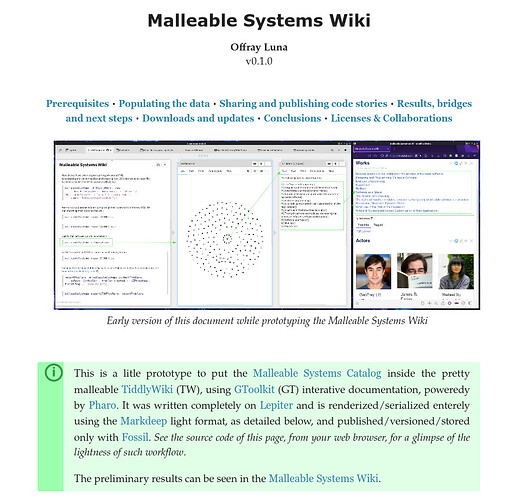Hi all,
TW occupies that place that blur distictions between an app and a document, so we can send a single HTML file with a lot of functionality and linked content.
In the same spirit of those simple solutions, I have been working on a simple format to share data/code stories, documenting how I migrated from Hugo to TW to build a malleable prototype of the Malleable Systems Wiki. You can click on the web published data story to see the details and here is a screenshot:
Compared with popular solutions to share data stories, like Jupyter notebooks:
- It’s pretty light. The Markdeep JS library that provides most of the publishing magic weights ~350kb. The complete data story in the link above weights 52Kb and is contained in a single file.
- It can be rendered in any browser with JS enabled and hosted in any web folder/server, DVCS or emailed. In contrast, making
ipynbformats easily web renderable requires “sufficient users of the format” and a huge infrastructure/oligopoly behind, like GitHub/Microsoft. - The exported document contains all the important metadata to import the data story back to Lepiter (I’ll working on the importer next week, but preliminary test showcased that the importer is almost done). When you export a Jupyter notebook to HTML, you can not import it back from there to Jupyter.
- It’s human, diff and semantic breaks friendly. In contrast Jupyter notebooks deal with long/nested JSON strings.
It’s pretty cool what this alternatives (TW, Markdeep, Lepiter, Fossil) provide to a solo developer or a small team in such well proportioned expressibity/simplicity ratio. And even more what can happen when they’re combined (more posts to come in that regard, when they’re ready).
